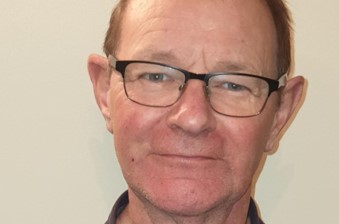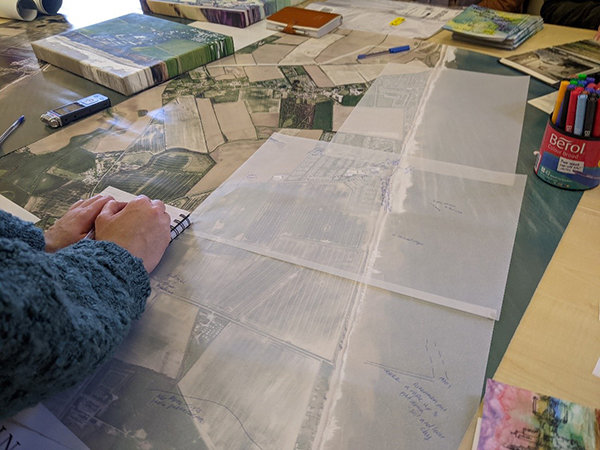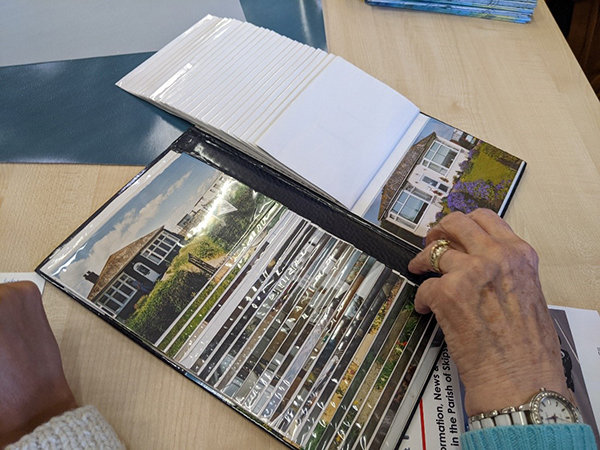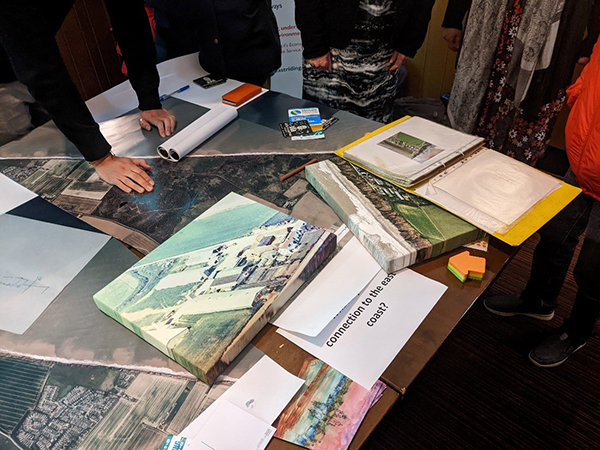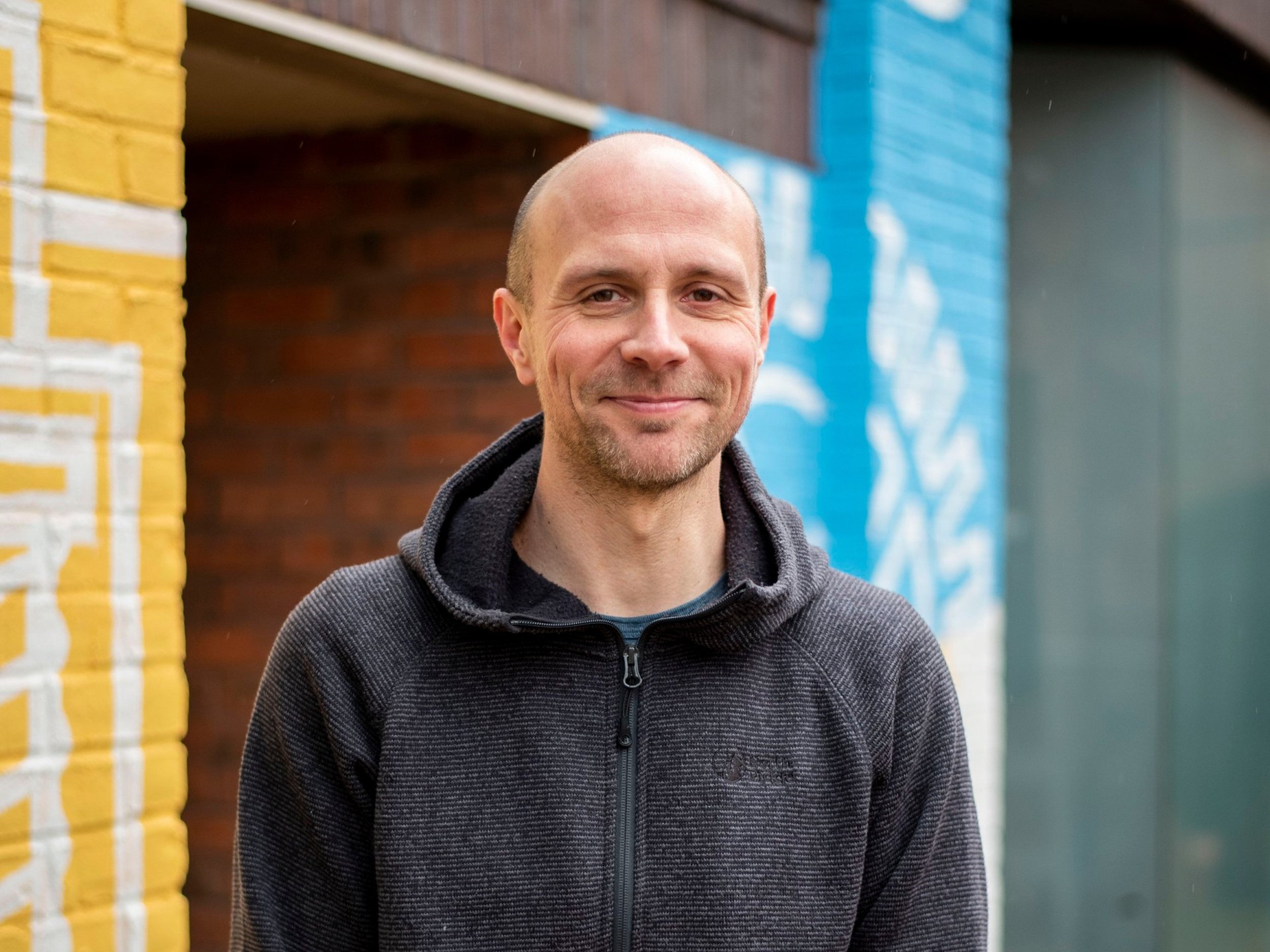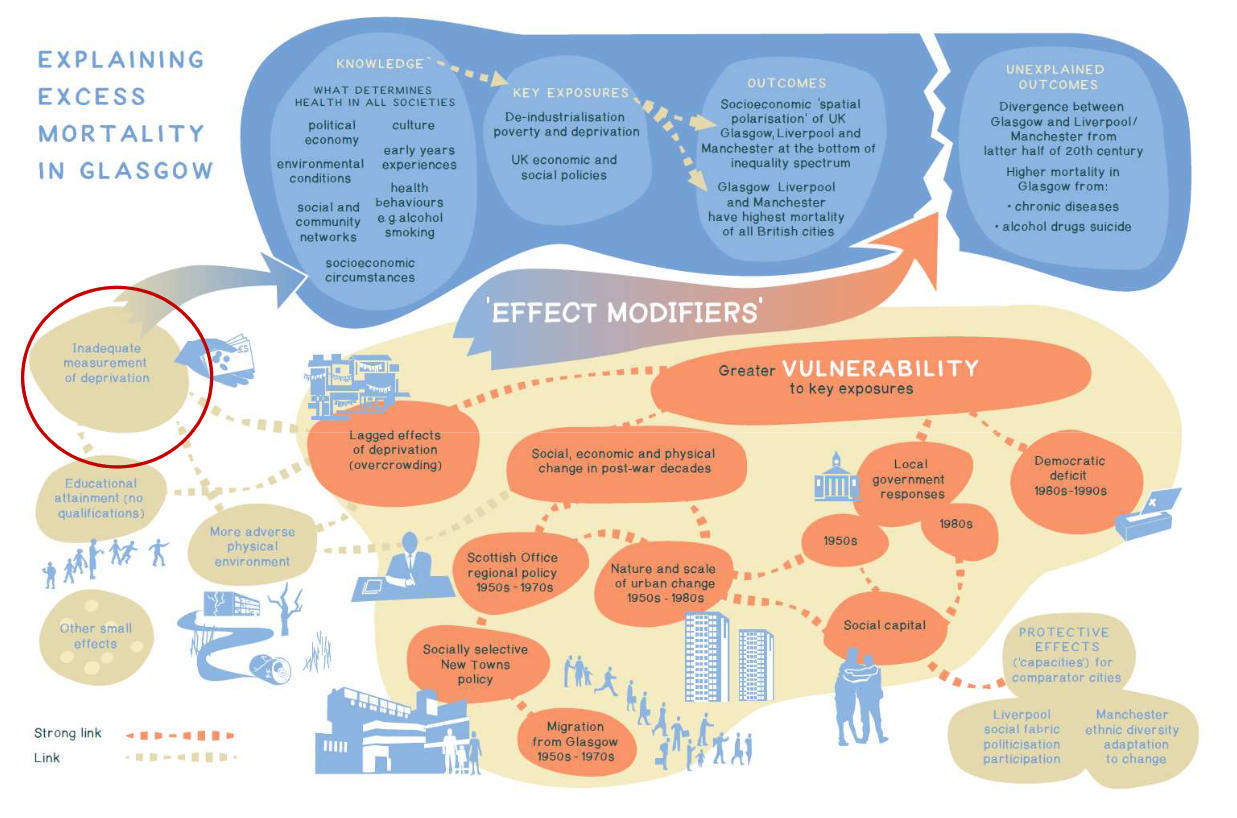A trailblazing Yorkshire-based project, which includes a new data portal giving communities vital information, and major climate change initiative, has secured £5m funding.
The project, the only one to be funded in England, and one of just four in the UK to be awarded UK Research and Innovation (UKRI) investment, will be delivered between now and December, 2026 after a successful bid led by The University of Leeds on behalf of Yorkshire Universities – an innovative partnership of twelve higher education institutions – and other public, private and community sector organisations based in the region.
The funding, part of UKRI’s work to create opportunities and improve outcomes locally, and spread over three years, will enable the region’s academics to work directly in the field with community groups and policymakers on a series of research areas across Yorkshire and Humber identified as priorities in an extensive pre-bid consultation exercise.
It will be delivered by a consortium working together as the Yorkshire and Humber Policy Innovation Partnership (Y-PIP) – which comprises all Yorkshire Universities’ members plus, local and mayoral combined authority representatives, the Yorkshire and Humber Policy Engagement and Research Network (Y-PERN), the Yorkshire and Humber Climate Commission (YHCC), Yorkshire and Humber Applied Research Collaboration, and, crucially, local community groups.
Today, delighted officials at Yorkshire Universities said the new funding would enable its members and partners to build on the success of existing work with Y-PERN, and confirmed that the funded activities under Y-PIP will include:
- A new Yorkshire and Humber Office of Data Analytics – which will be managed by the University of Sheffield, with support from Y-PERN, YHCC and other universities, to give the public and organisations access to up-to-date, reliable and easy to digest data about the region’s evolving economic, social, and environmental status.
The team will build a Yorkshire Engagement Portal, which will feature vital indicators, including health and deprivation measures, employment statistics, such as salaries and workforce demographics, education, ranging from free school meals data to attainment, air quality and housing stock.
Real-time data and information analytics will ensure local communities are given ‘a voice’ to work with policymakers to coordinate initiatives. Crucially, data will be updated regularly based on the needs and research undertaken with community groups, businesses, councils, and the voluntary sector.
- The UKRI funding will also help create an Inclusive Business Network and drive inclusive growth in the region.
Extensive stakeholder engagement and roundtable events will be held with employers, business groups, chambers of commerce and community groups across the region to provide an in-depth understanding of the opportunities and challenges faced by businesses in attracting and retaining greater diversity of talent.
The research will examine inclusive business practices – how companies recruit and serve – and how improvements can be made in the workplace to mental health and well-being, recruitment, retention, and flexible working. Initially focused on Sheffield, Barnsley and Rotherham, the project will be rolled out across the wider region, and will be led by Sheffield Hallam University, experts in this field.
- Sustainable Living in a Greener Economy – there will also be a major climate change initiative examining key regional challenges of cutting carbon emissions while reducing inequality and improving wellbeing.
Led by the YHCC, and including the University of York’s Stockholm Environment Institute, and Leeds Sustainability Institute, based at Leeds Beckett University, and working in tandem with community groups and policy makers, this strand of Y-PIP will examine how heritage buildings can meet Net Zero targets and be more energy efficient without damaging structures or impinging on their character. The work will initially be piloted in the City of York and in the rural areas of North Yorkshire, given the number of historical buildings in this part of the region, before being rolled out to other parts of Yorkshire and the Humber.
- Creative Economy Pilot in Bradford – Ahead of its Capital of Culture year in 2025, this project will examine how Bradford, the youngest city in Europe, can bring greater diversity and dynamism to and within local creative industries.
This work will explore how artisans and entrepreneurs from underrepresented groups in Bradford can create start-ups, establish business clusters, develop region-wide networks and access new funding within the arts and creative industries. The findings and lessons from the project will be rolled out to other parts of the region. Support will also be provided for younger residents who are intent on building careers via the creative economy and entrepreneurship. The University of Bradford will facilitate links with local networks and host events.
Ahead of the successful Y-PIP bid, an extensive consultation exercise took place. Workshops were held across Yorkshire, which saw 38 public sector, 22 private sector and 30 voluntary and community sector representatives, including residents from disadvantaged and marginalised backgrounds to identify shortfalls, agree priorities and share experiences around the key issues ranging from employment to health and well-being. This work led to the decision to ensure that communities were embedded firmly within Y-PIP.
- At the heart of Y-PIP will be a community panel – comprised of 12 members with diverse experiences of disadvantage, marginalisation or isolation – who will have their voices heard by key policymakers and researchers in the region.
The ‘communities in their places’ cross-cutting theme will run throughout Y-PIP and it will link together all the different elements of the programme. The University of Hull will play a leading role in steering this novel and innovative work. Y-PIP will resource communities to be equal partners in place-based policy making as a key stepping stone to achieving communities’ inclusion in collaborative regional governance.
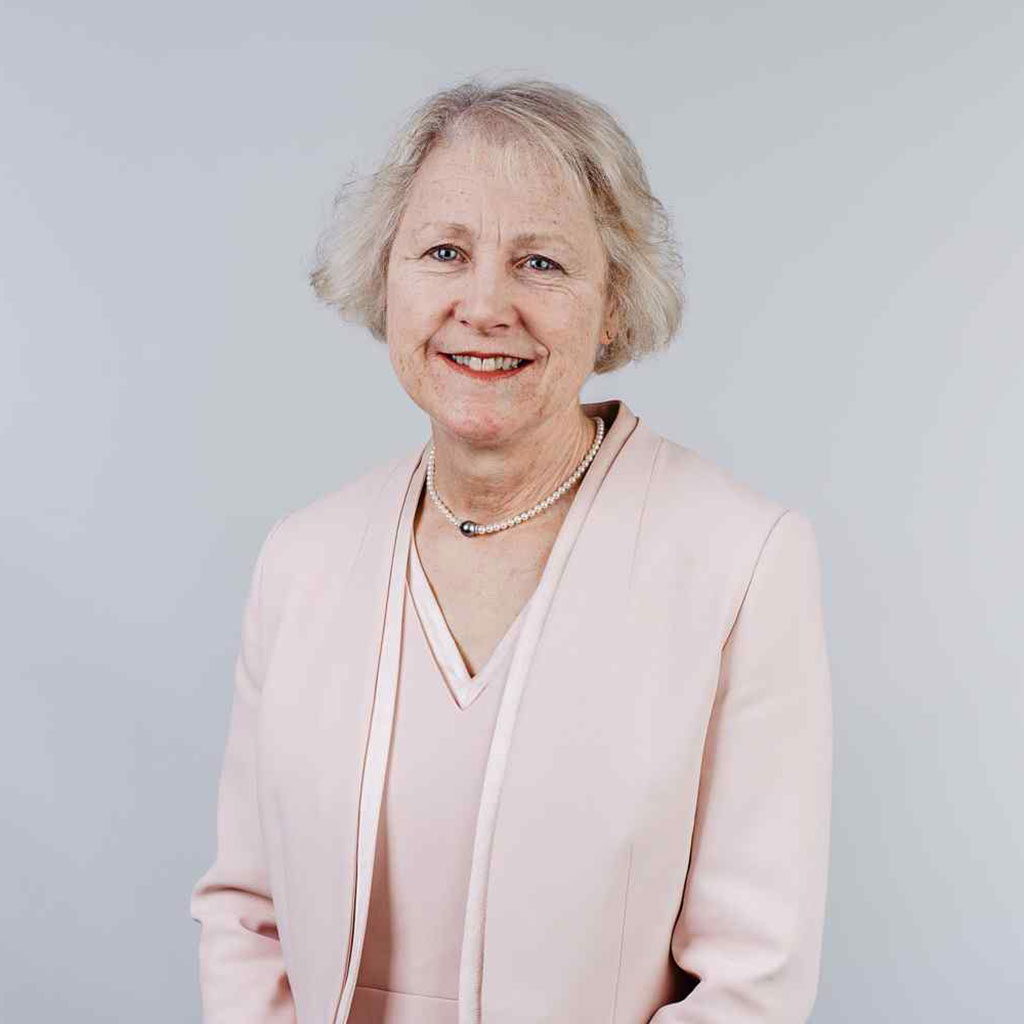
Professor Karen Bryan OBE, Chair of Yorkshire Universities, said:
This is a brilliant example of Yorkshire Universities’ core mission to promote and use research and evidence that relates directly to the issues that matter to communities, businesses and policymakers in the region. This pioneering research project, working in tandem with the existing Y-PERN infrastructure, and building on our strategic partnership with Yorkshire and Humber Councils, will see academics work in partnership with communities to identify policy and practical solutions to help overcome social and economic barriers to learning, jobs and community cohesion, and to realise the many opportunities that Yorkshire has to offer.
Note to Editors
About Yorkshire Universities
Comprising a powerhouse of 12 academically flourishing and esteemed higher education institutions – Yorkshire Universities champions the power and potential of Yorkshire as a place where graduates, communities and businesses thrive and enhances the region’s global connections and aspirations by encouraging stronger partnerships between academia and key policymakers.
Since its foundation in 1987, YU has had an unflinching pledge from its members – Leeds Arts University, Leeds Beckett University, Leeds Conservatoire, Leeds Trinity University, Sheffield Hallam University, University of Bradford, University of Huddersfield, University of Hull, University of Leeds, University of Sheffield, University of York, and York St John University – to maximise research funding opportunities for trailblazing collaborations, share best practice, and innovative ideas and use its combined voice to champion the region locally, nationally and globally to ensure Yorkshire continues to flourish and maximise social and economic opportunities. You can read more about YU HERE.
About Y-PIP
Y-PIP is the Yorkshire and Humber Policy Innovation Partnership. It is one of four Local Policy Innovation Partnerships (LPIPs) funded by UK Research and Innovation (UKRI) across the UK.
Key partners in Y-PIP are the twelve higher education members of Yorkshire Universities, local and mayoral combined authority members of Yorkshire and Humber Councils, the Yorkshire and Humber Policy Engagement and Research Network (Y-PERN), the Yorkshire and Humber Climate Commission, Yorkshire and Humber Applied Research Collaboration, and local community groups.
The University of Leeds will manage the project on behalf of the consortium, which will be led by Professor Gary Dymski from Leeds University Business School.
Y-PIP is designed to empower communities across the region, particularly low income, marginalised and/or spatially isolated communities.
LPIPs aim to address social, community, economic and environmental priorities that contribute towards inclusive sustainable economic growth by connecting local policy and research partners.
About Yorkshire & Humber Policy Engagement & Research (Y-PERN) and how Y-PIP fits in
Y-PERN is a three-year (2022-25) pilot project to widen and deepen collaboration within and across Yorkshire’s 15 local authorities and 2 combined authorities and researchers based at the 12 higher education institutions that are members of Yorkshire Universities. The priority area of focus in Y-PERN is to help develop inclusive local economic strategies and policy by drawing on the broad range of expertise across Yorkshire and underpinned by a team of Policy Fellows based across the region. In practical terms, this means bringing in expertise from across a range of specialisms – economy, climate, health, education, biodiversity, etc – as well as communities and those with lived experiences, to inform economic development. The project is funded through the Research England Development Fund.
Y-PIP will provide significant new resources to commission, construct and implement research jointly between researchers, policymakers and communities, which the Y-PERN infrastructure will help to accelerate and to disseminate.
About UK Research and Innovation (UKRI)
Big challenges demand big thinkers – those who can unlock the answers and further our understanding of the important issues of our time. Our work encompasses everything from the physical, biological and social sciences, to innovation, engineering, medicine, the environment and the cultural impact of the arts and humanities. In all these areas, our role is to bring together the people who can innovate and change the world for the better. We work with the government to invest over £8 billion a year in research and innovation by partnering with academia and industry to make the impossible, possible. Through the UK’s nine leading academic and industrial funding councils, we create knowledge with impact.







